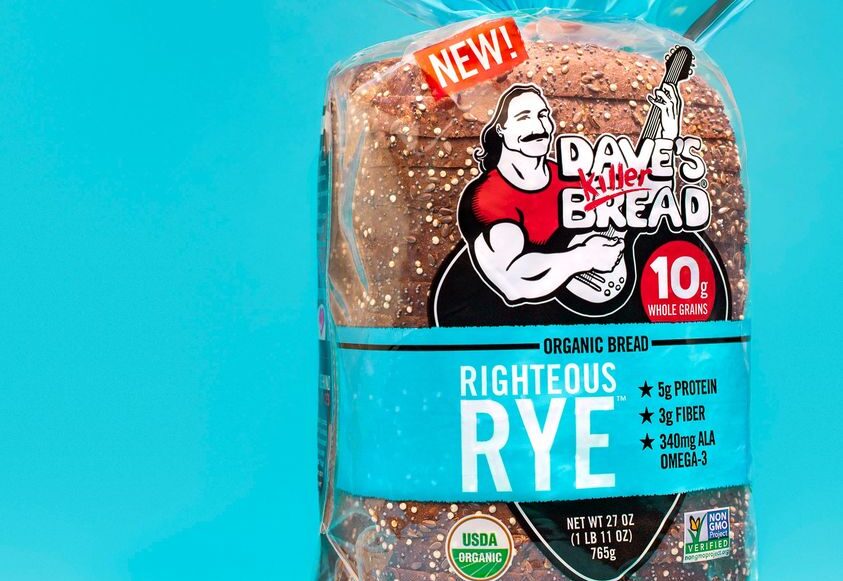
With US inflation running to high-single-digits, bakery supplier Flowers Foods has not yet seen a trade down into private label but is watching a second round of price increases for any demand reversion.
Flowers Foods, presenting its first-quarter results last week, raised its sales guidance for 2022, largely on the back of a price rise in January and another planned in June, noting elasticities related to the consumer have so far “been lower than even we anticipated”.

Discover B2B Marketing That Performs
Combine business intelligence and editorial excellence to reach engaged professionals across 36 leading media platforms.
Food manufacturers have been passing input costs down the line, with some suffering a volume decline while others have weathered the impact. But the ever-growing cost-of-living crunch has brought the issue of a global recession into focus, despite US inflation easing a touch to 8.3% in April, from 8.5% in March, the highest since 1981.
While the Dave’s Killer Bread and Nature’s Own brands maker saw volumes drop in the quarter to 23 April, president and CEO Ryals McMullian said the decline was mainly seen in cake, fast food and its “store-branded business”. Demand has increased for Flowers Foods’ premium bread lines.
With perceptions intensifying consumers will increasingly feel the pinch from rising food costs, McMullian was asked during the Q&A results follow-up session to spell out his thoughts on the mounting pressures.
“We all know that the consumer is under quite a bit of pressure, though, I will say a lot of the information out there is somewhat conflicting. Yes, you read some things that suggest that perhaps the consumer is starting to bargain hunt a little bit more or making some different decisions,” he said, admitting there could be a “shift in behaviour” around the June price round.

US Tariffs are shifting - will you react or anticipate?
Don’t let policy changes catch you off guard. Stay proactive with real-time data and expert analysis.
By GlobalDataIn the context of previous recessions, McMullian said in his prepared remarks: “The last period of significant inflation coincided with the financial crisis and the after-effects that occurred roughly from 2007 to 2012. The common perception is that recessions encourage consumers to trade down to lower-priced products, particularly private label.
“However, what we found during this period was that despite the severe economic hardships, including high unemployment and low consumer confidence, private label did not gain meaningful share, though we did see a shift from foodservice to branded retail as consumers cut back on more expensive restaurant visits.”
McMullian added hybrid working has also shored up demand, especially with a move into more premium bakery products from the “traditional sort of 20-ounce loaf segment”, although Flowers Foods plays a part in that area.
“We have seen a shift in the category out to those more premium, more differentiated items. And the good news is, that has held up, at least so far even in this challenging environment,” he explained. “And you add to that the continued work-from-home trends that we’re seeing, I think we’ve got a nice backdrop for continued good performance. As far as retailers prioritising private label, we have not seen that.”
Flowers Foods’ 10.3% increase in first-quarter sales to US$1.4bn could have been stronger “were it not for higher-than-expected inflation, supply chain disruptions” and the company’s rationalisation strategy to focus on higher-margin branded products, McMullian said. The company upped its sales guidance for the year to growth of 10-12% ($4.7-4.8bn) from 7.6% to 8.4%. However, it now sees its adjusted earnings per share coming in between approximately $1.20 and $1.30, compared to prior guidance of $1.25 to $1.35.
Elsewhere, adjusted EBITDA rose 2.4% to $165.5m and net income was up 19.4% at $85.6m.
With the war in Ukraine, the CEO explained commodity inputs have “risen meaningfully higher than our original expectations” since the January price increase, while “supply chain disruptions hampered our ability to procure adequate quantities of certain raw materials and packaging items”.
However, he said that while “virtually none of our raw materials originate in Ukraine, the current events there do impact the world market for wheat and other commodities”.
McMullian added: “In addition to inflation, acute supply-chain disruptions are increasing distribution costs and, in some instances, resulting in a shortage of materials. Those shortages may persist into the second half of the year, but we are actively working to mitigate them and expect the issues to be resolved in the third quarter.
“We are also keeping a close eye on possible demand reversion related to the waning pandemic and a potential economic recession.”





